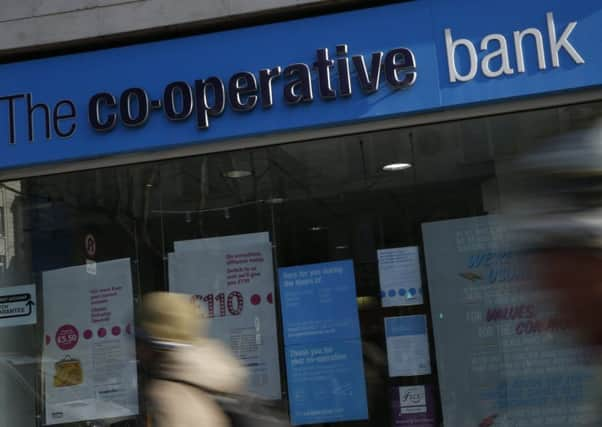The stretched ethical bank puts itself up for sale
This article contains affiliate links. We may earn a small commission on items purchased through this article, but that does not affect our editorial judgement.


Lower-for-longer interest rates may have been good for borrowing households and variable mortgage-payers, but they have been something of a nail in the coffin for the Co-op Bank.
They have stopped the bank, which nearly went belly-up in 2013 with a £1.5 billion capital shortfall, from fully achieving its turnaround to the financial strength agreed with the regulators and it has now put itself up for sale.
Advertisement
Hide AdAdvertisement
Hide AdThe bank, like its bigger rivals, may have paid less interest on its deposits, but that has been more than offset by reeling in less interest on its loans. It has been a rollercoaster ride for the self-styled “ethical bank”, which in an undreamt of twist ended up being rescued by bondholders, including hard-nosed US hedge funds.
That followed the group being laid low with massive property bad debts following its merger with the Britannia building society in 2009. In a bizarre twist, Co-op Bank’s former chairman, the Reverend Paul Flowers, was defenestrated in the midst of the furore over concerns about his expenses and drug offences.
As part of the initial rescue, parent Co-op Group reduced its stake to a minority 20 per cent holding, with the hedge funds largely wagering that they could make a decent “turn” on their investment via interest rates rising from historical lows and a streamling of the operation after rigorous costcutting. But it looks as if it was not to be. The bank, which has four million customers, formally hoisted the For Sale sign over itself as it admitted its ability to meet its longer-term UK bank regulatory capital requirements was largely derailed by those low interest rates and higher than expected transformation and “conduct remediation” costs.
The writing had been on the wall. Last month, the Co-op Bank said it expected its core capital ratio to fall below 10 per cent, falling short of regulatory requirements. The group also confirmed a “significant loss” for 2016 and many expect a further loss this year.
The bank was trying to put a brave face on it yesterday. It said that substantial progress had been made on its turnaround, having cut its costbase by a fifth since its dark days, and that it still had an enviable “franchise” and good customer service.
The Co-op Bank has 105 branches (just two of them in Scotland, on George Street in Edinburgh and Gordon Street in Glasgow). Analysts said yesterday that you could see possible interest in them from some challenger banks, including TSB and CYBG, the owner of Clydesdale and Yorkshire banks. However, the latter has already expressed interest in the 300 Williams & Glyn branches being spun out of Royal Bank of Scotland as a quid pro quo from Brussels for allowing RBS’s taxpayer bailout in the crash.
Less likely challenger bank interest in the outlets for sale is seen from the likes of Tesco Bank and Virgin Money, whose business offer is not branch-centric, but more telephone and internet focused. Which brings us to another possible fly in the ointment. All banks, from the Big Four down, have been largely cutting back their branch networks to address the rising tide of customers who prefer doing financial transactions on their mobile phones, tablets and computers.
Advertisement
Hide AdAdvertisement
Hide AdAgainst this backcloth, is now the best sellers’ market for bricks-and-mortar bank assets? Hardly. As with all bank spinoffs, it is best to keep one’s options at least allegedly open to try and avoid selling out for a song. Lloyds did it with TSB (which went to Sabadell of Spain in the end), and RBS kept a dual possibility flotation or sale of Williams & Glyn open for as long as possible, as it has talked to the likes of Santander and CYBG.
Co-op Bank is doing the same. The group says that while it is “inviting offers” for a sale that was always a potential outcome of the turnaround programme, it is also “considering other options to build capital”. This is thought to include potentially raising equity capital from existing and new capital providers. The bank’s immediate issue is the repayment of £400 million worth of bonds that mature in September.
On the plus side, both the wider Co-op Group, where chief executive Richard Pennycook announced last week he is stepping down, and the Prudential Regulation Authority (PRA), have welcomed Co-op Bank’s search for a new owner. At that time Co-op Group chairman Allan Leighton refused to rule out pumping more money into the embattled lender. The PRA, responsible for assessing the financial strength of Britain’s banks and insurers, may well have privately decided that in the current climate a weakened Co-op Bank is walking up the down escalator.
